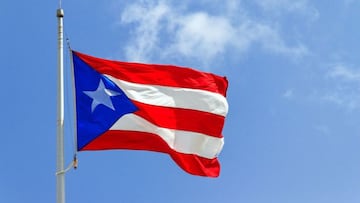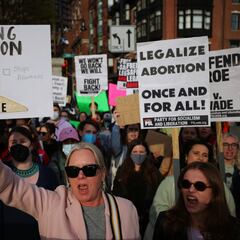Social security disabilities: why did the Supreme Court deny benefits for residents in Puerto Rico?
A recent ruling from the Supreme Court has once again denied US citizens the right to receive Social Security payments.


In the latest set back to equality in the US, Puerto Rico has once again been denied the same rights as other parts of the US. The Supreme Court has ruled that, as a territory and not a state, the same rules and rights need not be passed on to the island that exist in other parts of the US..
One of the points made by Justice Kavanaugh, who penned the 8-1 opinion, was that “just as not every federal tax extends to residents of Puerto Rico, so too not every federal benefits program extends to residents of Puerto Rico.”
This argument was criticised by Justice Sotomayor, herself of Puerto Rican descent and the only dissenting voice. She said this ruling could be used to target citizens living in states which pay much less federal taxes, like Vermont, Wyoming, South Dakota, North Dakota, Montana and Alaska.
Excluding Puerto Rico and other U.S. territories from nationwide federal aid programs is yet another policy deeply rooted in discrimination and racism.
— NY AG James (@NewYorkStateAG) September 8, 2021
I'm urging the Supreme Court to reject this policy and treat all Americans fairly, especially those who need it most.
“[The ruling] makes it far easier for Congress, a body in which the territories are not represented, to treat residents of those territories differently with those who live in the states -- not just for Supplemental Security Income, but for all federal benefit programs,” said CNN Supreme Court analyst Steve Vladeck.
Puerto Rico is not a state of the US, it is a territory. This gives Congress the power to decide on its dealings with the island, despite the island having no representation in this process. These rulings and decisions are handed down to Puerto Rico, with no real recourse to stand up for itself.
Related stories
In the contiguous US, citizens are eligible for SSI payments when their monthly earnings drop below $750 a month. In Puerto Rico, where the people are also citizens, they cannot earn more than $65 a month. To compound this, the average benefit on the island is a meager $77 a month, compared to the average in the US of $533 a month. In comparison, a person in Texas would receive ten times more than someone in Puerto Rico from their job and SSI benefits combined, if they were working just under the threshold. It is then no wonder that 44 percent of Puerto Ricans live in poverty, far higher than any state in the US.
Why was the case brought to the court in the first place?
The case answered was that of José Luis Vaello-Madero, 67, a disabled man who lived in New York from 1985 until 2013. After moving to Puerto Rico, he still received SSI payments for three years, after which he was targeted by the Social Security Administration. They demanded he pay back $28,000 in benefits he received while on the island.

